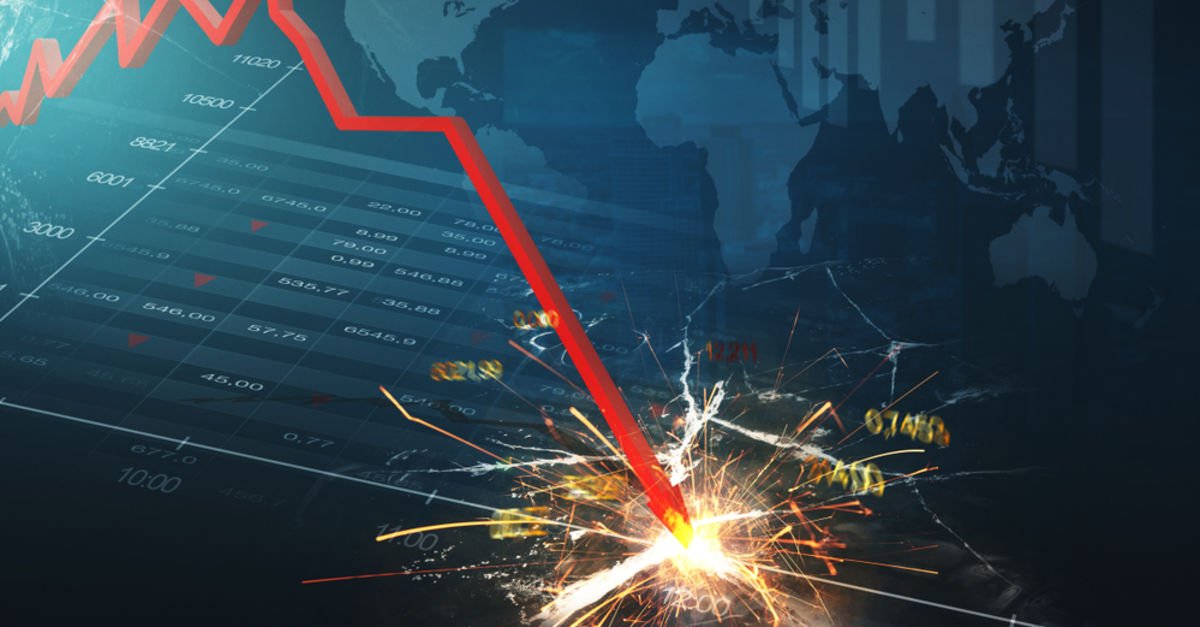How To Safeguard Wealth From Economic Downturns Effectively
Although it is not an easy process, to safeguard wealth from economic downturns, it is possible for individuals of all income levels thanks to some strategies and investment projects.
Especially before economic downturns, having diversified investment portfolios provides great support. Therefore, it is very important to create investment and savings accounts according to the conditions of the country you live in, during periods when the economy is relatively calm.
In order to protect and safeguard wealth from economic downturns, we should give more place to liquid asset classes in our investment portfolios, make expenses suitable for our budget, and implement savings programs.
Even in many developed countries, economic downturns can occur from time to time. In such periods, financial interaction usually decreases, and the cost of living increases. Major financial problems such as inflation and unemployment may occur.
In order for your well-being to be minimally affected by these conditions, it is vital to have investment and savings plans such as emergency funds.
What Does It Mean To Safeguard Wealth From Economic Downturns?

If we were to define “safeguard wealth from economic downturns”, it could be strategies that prevent the loss of value of your assets in a market where markets are volatile, uncertainty is high, and inflation and unemployment rates are increasing.
This process generally includes steps such as successfully implementing risk management strategies, new methods required to maintain income flow, and ensuring financial security.
No matter what income level you are an individual, you face the risk of losing the value of your assets during economic downturns.
Because during economic downturns, inflation increases, and the value of the local currency decreases in the markets. For this reason, the importance of the asset class in your investments increases even more.
To protect yourself from such risks, you should set up savings or emergency fund accounts. These accounts should also be diversified with different asset classes.
In the past, many countries have seen a decrease in value in investment classes such as local currencies or real estate during many economic downturns.
To successfully implement risk management strategies, you should be managing your investment project through different asset classes.
Best Strategies To Safeguard Wealth From Economic Downturns
Many strategies can be suggested for individuals to safeguard wealth from economic downturns. Among these, diversification comes first, as in almost every investment process.
Thanks to the diversification strategy, individuals will not lose their assets, which they distribute to different asset types, in possible crises or downturns.
For example, gold, as a reliable investment model, does not require all assets to be kept as gold. In a possible crisis, the decrease in the value of gold may harm your financial stability.
However, if you buy gold with some of your assets, real estate with some of them, and foreign currency with some of them, your wealth will be protected even in a possible economic downturn period.
In addition, spending processes should also be optimized. Individuals who want to protect their wealth value should pay attention to their spending during economic downturn periods.
In such periods, minimizing unnecessary expenses and implementing savings projects are of critical importance.
In addition, one of the most useful strategies to safeguard wealth from economic downturns is utilizing the protective investment models. Thanks to protective investment models such as gold, bonds, retirement funds, and stocks, economic downturns will cease to be a crisis for you.
It is also important to remember to avoid high-interest debts through some debt management strategies. During times like economic downturns, increasing debt burdens can increase your stress levels.
However, if these strategies are implemented consistently and deliberately, you can also manage your debt well.
How Diversification Helps Safeguard Wealth From Economic Downturns?
How is it that diversification strategies recommended for almost every investment model in every period are one of the most effective ways to safeguard wealth from economic downturns?
Thanks to diversification strategies, individuals distribute the possible risks that arise during economic downturns.
Diversification includes not only different asset classes such as gold, real estate, bonds, stocks, and cryptocurrencies but also the processes of investing in different sectors and countries.
For example, it is not recommended for a high-income and wealthy individual to manage all investment projects in only one country.
While managing investment projects in the country he/she resides, managing investment projects in developing countries with commercial profitability potential will make him/her stronger in possible economic downturns.
Many sectors and many asset classes may lose value during economic downturns. If you invest all of your assets or investment capital in a single asset class or sector, you can go bankrupt during a possible recession.
For this reason, you should implement diversification strategies such as investing in the field of construction and investing a certain amount in the field of information technology.
Common Mistakes When Trying To Safeguard Wealth From Economic Downturns
Many common mistakes can be made during times to safeguard wealth from economic downturns. The important thing is not to make these mistakes long-term and not to persist. Panic sales are one of the first economic downturn mistakes that come to mind.
If you do not have a planned investment project, your reaction may be emotional after the frequent declines in economic downturn periods and you may be tempted to sell off your assets quickly. We never recommend this.
Another common mistake is the lack of diversification. If investors manage their investment and savings accounts with a single sector, a single country, and a single asset class, they may lose their financial stability in possible economic crises or economic downturns.
Because even investment classes such as gold or real estate, which are considered safe havens in such periods, may experience a decrease in value. In addition to these, lack of liquid reserves is also a common mistake in economic downturns.
It is very risky to enter economic downturn periods without cash reserves. You should always have a liquid reserve account that you have set aside for special conditions, such as an emergency fund.
Lack of long-term planning is also an important and common mistake. You should always have a plan for possible emergencies or financial downturns. You should be managing an emergency fund account based on this plan.
How Real Estate Can Safeguard Wealth From Economic Downturns?

Real estate investments are one of the most effective methods for safeguard wealth from economic downturns. It is generally an investment type that can be resistant to possible market fluctuations.
For example, when you buy a house, it offers you a rental income opportunity. Thanks to this regular income, you can maintain your financial stability while at the same time, this property can appreciate over time.
Real estate investment is one of the best options to combat special conditions such as inflation. Real estate investments are also an effective investment tool in safeguard wealth from economic downturns due to being a physical asset.
Because when you buy a house or land, you physically own that property. In cases such as possible pandemics, wars, and digital crashes, the probability of damage to your investment vehicle is less than other types of digital investments.
Although real estate investments are more durable and reliable compared to other investment models, this type of investment alone is not enough to safeguard wealth from economic downturns. It will be a great safe option when evaluated together with diversification strategies.
The Role Of Gold To Safeguard Wealth From Economic Downturns
AGold is also considered a safe haven, just like real estate investment, and is a good choice for safeguard wealth from economic downturns. While market fluctuations have direct negative effects on many investment models, this is less the case in gold investments.
Moreover, since it is a liquid asset class, it can be quickly converted into cash during economic downturns, which makes it an advantage to use in long-term investments.
It is possible to manage an investment project with gold not only physically but also with digital methods offered by banks or other financial institutions.
In other words, instead of physically going to a gold store, you can buy gold online through a bank mobile application and convert it into cash in return for the value of the gold in the future. Thanks to this ability, it is easier to access the financial resources needed during economic downturns.
Moreover, since gold will not lose much of its value compared to other investment models in possible crisis conditions, it will always be a good choice.
However, as in other investment models, it is very important to implement diversification strategies instead of evaluating all investment capital with gold.
How To Use Financial Advisors To Safeguard Wealth From Economic Downturns?
For high-income individuals with high income and capital above a certain level, it may not be easy to provide personal safeguard wealth from economic downturns.
Moreover, not only individuals but also some institutions may need such suggestions. One of the most effective ways to safeguard wealth from economic downturns for both institutions and high-profile individuals is through financial advisors.
Thanks to expert financial advisors in their field, you do not have to spend energy on optimizing investment processes. They conduct market analysis on your behalf and distribute your assets to different investment classes in the most ideal way.
They minimize risk on your behalf thanks to the technique they use in diversification strategies. In addition, thanks to financial advisors, you will also be more comfortable in budget planning processes.
They protect you by preparing a savings program following your income-expense balance and taking the least damage you can get during the economic downturns period. This protects you from uncertainties during the economic downturns period.
Steps To Create A Plan To Safeguard Wealth From Economic Downturns
Individuals need a detailed plan to provide the most effective safeguard wealth from economic downturns. Creating this plan consists of a few simple steps. First, you should determine your financial situation.
Your income-expense balance, and assets should be analyzed and the resources you can allocate for investment should be determined. Then you should create a risk management program.
You should look for ways to evaluate your assets with multiple different investment types, not just one type of investment. In addition, creating a liquid reserve is also an important step.
It is very important to have cash in case of emergencies such as economic downturns. Some of your assets should be easily accessible. One of the most important stages in this planning process is to get help from expert institutions or individuals.
If you implement an investment plan with financial advisors, you will have managed an investment project that is data-based and minimizes risk.
What Are The Risks Of Failing To Safeguard Wealth From Economic Downturns?

As with almost every investment project, safeguarding wealth from economic downturns also involves some risks. First of all, neglecting protective measures is the most common risk.
In addition, financial losses and increasing debt burden due to incorrect debt management practices are other common risks. It may take time and energy to eliminate these risks.
Many investors may neglect to prepare their investment projects for such difficult conditions before economic downturns. However, as suggested by financial advisors, these possible risks can be successfully managed in investment projects where diversification strategies are applied.
Future Trends To Safeguard Wealth From Economic Downturns
Although we live in an era where the number of digital investment options is increasing and the financial field is rapidly developing, this does not mean that there will be no economic downturns.
In the future, we may also be waiting for possible economic downturns due to situations such as war and epidemics.
I think digital investment options should be the first in the future trends to safeguard wealth from economic downturns.
Digital investment options, drawing strength from the formation of new asset classes such as cryptocurrencies, allow investment projects to be carried out faster, more securely, and decentralized.
This provides the liquidity needed during economic downturns. In addition, sustainable investments based on ESG criteria and technology-supported financial management can also be mentioned among the trends of the future.
In particular, the speed of development of artificial intelligence and automation technologies will make risk management strategies work perfectly.
See you in the next post,
Anil UZUN
